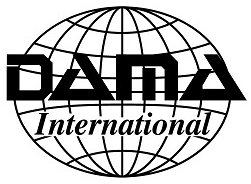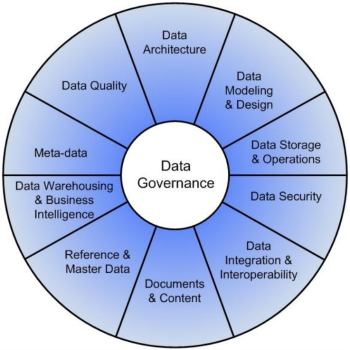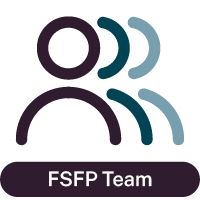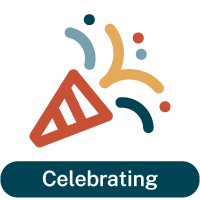Deborah Henderson, a consultant with First San Francisco Partners, has more than 30 years of experience in data and information management consulting, working in a variety of industries. While, at first glance, her credentials might sound similar to our other consultants with their decades of industry experience, Deborah’s background is particularly unique in that she’s spent years volunteering for a well-known data management organization — and those efforts inform the client work she does today.
At First San Francisco Partners (FSFP), Deborah advises our clients on several data management practice areas, including governance for Big Data, process and information modeling, data privacy and the General Data Protection Regulation (GDPR). Deborah is based in Toronto, Canada, and works with FSFP’s clients throughout the United States.
It Started With Taxonomies
Deborah, who has a master’s in Library Science, says her data management experience started with the “back-room work” of Information Technology (IT), where she organized and standardized information. “Librarians have been dealing with information management concepts and taxonomies for hundreds of years!” Deborah said. “In the 1800s, French bibliographer Jacques Charles Brunet invented five major classification for books: theology, jurisprudence, sciences and arts, belles-lettres and history.

FSFP’s consultant Deborah Henderson is the Program Director and Senior Editor of the DAMA Guide to the Data Management Body of Knowledge (DMBOK).
“Since then, the way we have classified and tagged information has been reinvented again and again. Today, we talk about object classes, metadata and taxonomies — new labels for handling historically standard problems in grouping and handling information,” Deborah said.
Deborah soon transitioned from a library role in a private company to mainstream IT, where one of her projects was to build a thesaurus for keyword controls in an executive email entry system. “I was in the minority as the first person out of 30,000 employees to make a transition out of the library environment,” Deborah recalled.
Because the company (formerly known as Ontario Hydro) was an engineering firm with less than 10% of its workforce being female with postgraduate degrees, Deborah was occasionally called on to participate in focus groups to discuss how the company treated women. “It was an interesting time for women. Librarians were taken out of the Human Resources trades job classification and put into the professional job classification while I was there,” Deborah said. Looking back, Deborah recalls being the only woman on software development and enterprise architecture teams — and said she’s found herself in the minority many times over the course of her career.
“Having the formal education that I did, understanding keywording, ontology and taxonomy,” Deborah said, “working in IT was a good leaping point into my next role as a data modeler, where I designed data storage to capture business transactions into the company’s technical solutions. I then rose through the ranks to become an Enterprise Data Architect and governance expert.”
The Origins of DAMA’s DMBOK
As Deborah’s experience grew, she became involved in the Information Resource Management Association of Canada, the Toronto chapter of the Data Management Association (DAMA). In 1999, she began volunteering her time with DAMA International (DAMAI), the global, over-arching organization, where her first role was Vice President of Education Services. “When I took over that portfolio,” Deborah recalled, “I had to invent my mandate. The Chicago chapter was very strong, and it had produced several versions of a data management standards book. But I knew we could do even more.”

DAMA International’s vision is to support an empowered global community of information professionals.
In 2003, Deborah conceived of a formalized data management body of knowledge, a reference text that a true organization of data professionals should have. “I traveled to DAMA’s Chicago chapter and attended their monthly meeting,” Deborah recalled. “I proposed the idea of creating this and asked if there was anyone who’d like to help me — and there were.”
Deborah’s DAMAI role grew significantly as she began to work on the organization’s first Data Management Body of Knowledge (DAMA-DMBOK), a collection of knowledge areas that are generally accepted as best practices within the Data Management discipline.
In 2005, Deborah and a small group of volunteers worked together to create their first deliverable, a white paper on how they proposed describing the body of knowledge. They asked DAMAI members for feedback and soon came out with a framework paper for the DMBOK, which was then translated into several languages.
Next came the volunteers’ work to document DAMA’s body of knowledge. Their first step — “A necessary prerequisite,” Deborah called it — was to develop a dictionary, which was published in 2009 and updated in 2011. “You can’t write a reference book without being clear in your vocabulary. The dictionary is now the standard for reference in the industry for ‘data terminology’ with citations. There are still a lot of confusing and nuanced terms in our industry, but I think it is getting better — and it’s, in part, because of the Dictionary of Data Management.”
Publication of the DAMA-DMBOK followed in 2009, and it was translated into Japanese, Portuguese and Chinese for the broader, global DAMAI members. “The uptake around the world has been fantastic as a new standard for data management,” Deborah said. “We made each chapter no more than 30 pages — short and digestible. It’s a great reference for people wanting background information and helpful for newly hired data management professionals.”
Eventually the group of volunteers turned its attention to completing a revision to the DMBOK, which was published in 2016.
Another visible representation of the body of knowledge is its wheel concept. “I drafted the first wheel to illustrate the key knowledge areas that cover core practices in data management. One update later, it’s rewarding to see the wheel is still in use today.”

Deborah Henderson’s industry experience includes creating the DAMA wheel” framework. (© DAMA’s DMBOK2 Guide Knowledge Area Wheel 2017)
Consulting for FSFP
After leaving the corporate world which included time spent working at General Motors’ world headquarters, Deborah joined FSFP as a consultant in January 2015. “Today, I work with clients on a variety of strategies, whether the problem is around data governance or understanding critical data, evaluating governance and data quality product functionality or working on GDPR data management controls.”
Deborah describes herself as an endlessly curious person. (“That’s interesting; tell me more” is one of her favorite phrases.) “It’s fascinating learning about other people’s business, where they want their business to go and devising strategies that help them go forward,” Deborah said.
Deborah stresses that effective communication is key to information management. “You can have the most beautiful strategy in the world,” Deborah said, “but without a focus on change management, there are limiters to success. To affect real change — and not just put organizational policies and processes in place — you have to change behaviors.”
Deborah works remotely, as everyone does at FSFP. “I enjoy traveling for client work, and it’s fascinating learning how businesses function. Working remote is simply a reality today with so many companies being virtual.”
Deborah’s Interests and Accreditations
Deborah continues her DAMAI work as the Program Director and Senior Editor of the DAMA-DMBOK. She earned the organization’s Certified Data Management Professional (CDMP)© designation and was awarded a fellowship. Deborah is a PMP®, a certified Project Management Professional, as well.
In her spare time, Deborah volunteers as Chief Information Officer for a human trafficking nonprofit. When she can find additional spare time, Deborah enjoys travelling, playing mobile video games and working on “massive” needle point projects that take months, if not years, to complete. “I love recognizing and riffing off their patterns into my own designs,” Deborah said.
Patterns of all types, including the constructs of data, are what keeps Deborah engaged and energized.


